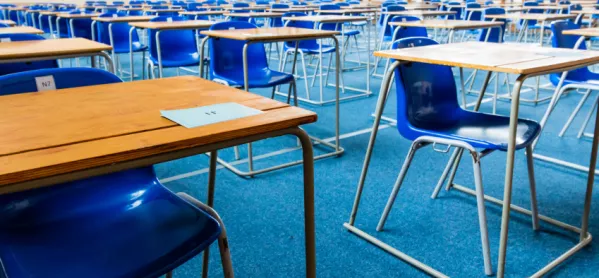Breaking: Rise in ‘traditional’ subjects at GCSE and A-level in 2015
Share
Breaking: Rise in ‘traditional’ subjects at GCSE and A-level in 2015
https://www.tes.com/magazine/archive/breaking-rise-traditional-subjects-gcse-and-level-2015

The number of students sitting A-levels and GCSEs in “traditional” subjects, such as English, maths and the sciences, has increased this year, according to exams regulator Ofqual.
The government’s introduction of performance measures, particularly the English Baccalaureate (Ebac), has led to a rise in candidates taking the so-called “facilitating subjects”, the chief regulator Gelnys Stacey said.
Ms Stacey also predicted that this summer’s GCSE and A-level results would be “relatively stable” in comparison with previous years, where changes to the content and structure of exams had led to volatile results for schools.
The government’s decision to only count the first attempt in an exam, as well as the removal of the speaking and listening assignments in English led to wild changes to schools’ GCSE results last year.
But Ms Stacey predicted more stability in both A-level and GCSEs this year, although she did state that there would be “natural variation” in results, which comes with the differences between cohorts and subjects.
The news of greater take-up of traditional subjects is likely to be trumpeted by the government, which will see it as a vindication of its reforms.
The rise in some subjects has inevitably led to a marked drop-off in ot hers, such as general studies at A-level and GCSE citizenship, which suffered a 50 per cent fall in students sitting the qualification.
“The subjects that are proving to be more popular this year are the more traditional subjects, so we have seen modest increases in the sciences - what the Russell Group of universities call facilitating subjects,” Ms Stacey said.
“We’ve seen this trend in recent years. In any event, it is noticeable this year and I assume it is in response to some of the performance measures you see now with the Ebac, and no doubt there will be a number of students thinking about their futures and where they want to go to university.”
According to provisional figures, Ofqual said all of the sciences had seen a rise in the number of candidates sitting both A-levels and GCSEs, and both maths and further maths were “noticeably more popular” at A-level.
There have also been increases in entries for computing at both GCSE and A-level.
Such subjects are seen to be “very good currency” for getting into the top universities, Ms Stacey said.
“If your aspirations are to study some subjects where there is a great deal of competition for places then maths is sometimes an absolute requirement in some places and often very well regarded at others,” she added.
But although some traditional subjects had enjoyed an increase in take-up, others, such as modern foreign languages, were merely “holding up”.
“Languages have not been on the same trajectory. You are not seeing increases and at GCSE we’ve seen slight decreases this year,” Ms Stacey added.
You've reached your limit of free articles this month. Subscribe for £1 per month for three months and get: